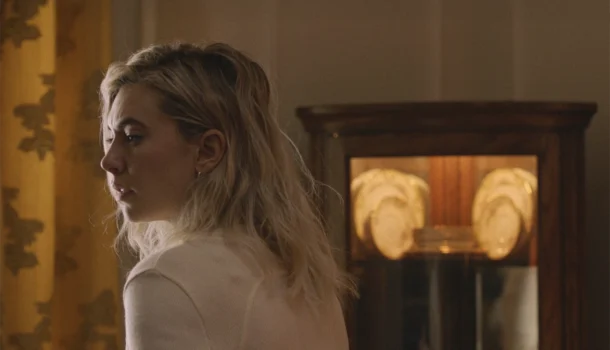The film “Pieces of a Woman”, directed by Hungarian filmmaker Kornél Mundruczó, marks his entry into English-language cinema with a narrative approach centered on a meticulously crafted long take. The direction relies on intense, precisely constructed dialogues to explore the emotional complexity and existential dilemmas of the characters. The story unfolds in an uninterrupted flow of events, with the first 25 minutes offering a visceral dive into the most crucial and delicate moments experienced by a couple.
The use of the long take, a technique that deepens audience immersion in the scene, has been revived in contemporary cinema. Classics from the 1970s and 1980s, such as “A Woman Under the Influence” (1974) by John Cassavetes and “Hannah and Her Sisters” (1986) by Woody Allen, employed this technique to intensify proximity and emotional impact. These works, marked by raw dialogues and an apparent chaos, place the viewer at the epicenter of dramatic tensions. Mundruczó follows this tradition by guiding the camera in a way that captures the characters’ reality with unsettling intensity.
The story follows Martha Weiss, portrayed with striking expressiveness by Vanessa Kirby, and her husband Sean, played by Shia LaBeouf. The film begins with the home birth of their daughter, Yvette, assisted by substitute midwife Eva, played by Molly Parker. This sequence, conducted with rawness and an unsettling rhythm, highlights the physical and emotional impact of the moment. Martha, immersed in the pain of labor, expresses her vulnerability in a raw and harrowing way, making the scene a visceral experience for the viewer.
The narrative takes a tragic turn when the newborn dies shortly after birth. The loss not only devastates Martha and Sean but also imposes an irreparable rupture in their relationship. Martha, sinking into grief, faces the coldness and pressure of her mother, Elizabeth, played by Ellen Burstyn. Burdened by a history of trauma, Elizabeth reveals herself as an oppressive figure, incapable of offering the support her daughter needs, turning pain into a battlefield between them.
The family tension escalates as Martha struggles not only with her suffering but also with the unraveling of her relationship with Sean. The presence of Suzanne, a lawyer cousin played by Sarah Snook, adds another layer of conflict, especially with the betrayal that unfolds from the couple’s fragility. Amid internal chaos and social pressure, Martha searches for a way to reorganize her existence and find some meaning to move forward.
The symbolism of the apple, present throughout the narrative, serves as a reflection of Martha’s journey. Associated with temptation and knowledge, the fruit symbolizes her path of self-discovery and reconstruction. Amid grief, she finds solace in gardening, transforming the soil into a space of rebirth. The image of fruit trees redefines her pain, suggesting that even in the face of loss, there is a way to heal and a possibility for a new beginning.
The film’s conclusion encapsulates Martha’s journey with a powerful and moving tone, highlighting her strength in the face of suffering. “Pieces of a Woman” establishes itself as a striking portrait of pain and resilience, reflecting the complexity of human relationships and the ability to find beauty and meaning amid the chaos of existence.
Film: Pieces of a Woman
Director: Kornél Mundruczó
Year: 2020
Genres: Drama
Rating: 10/10

